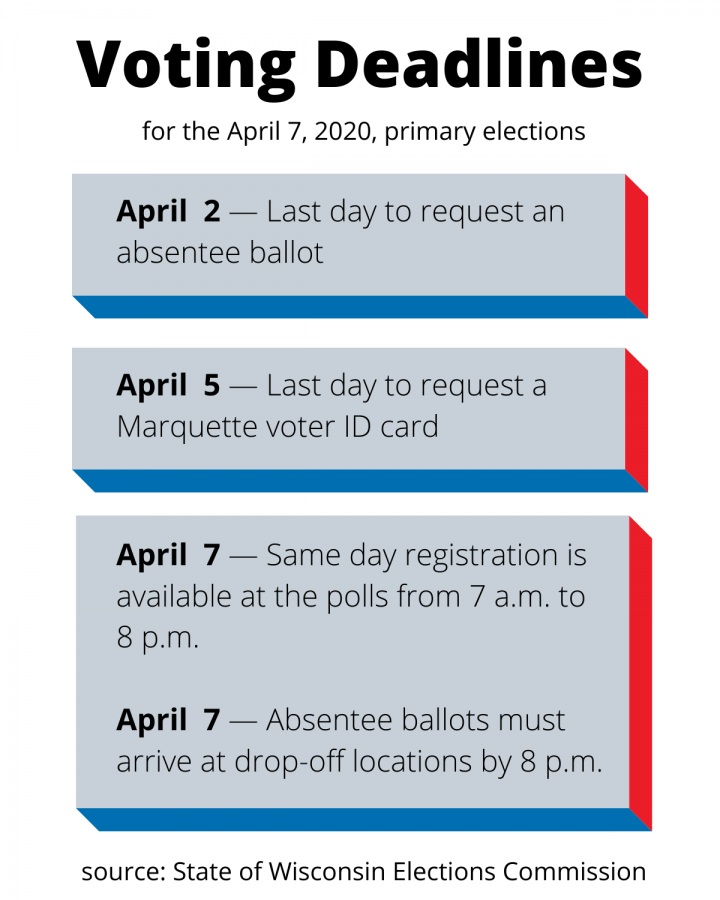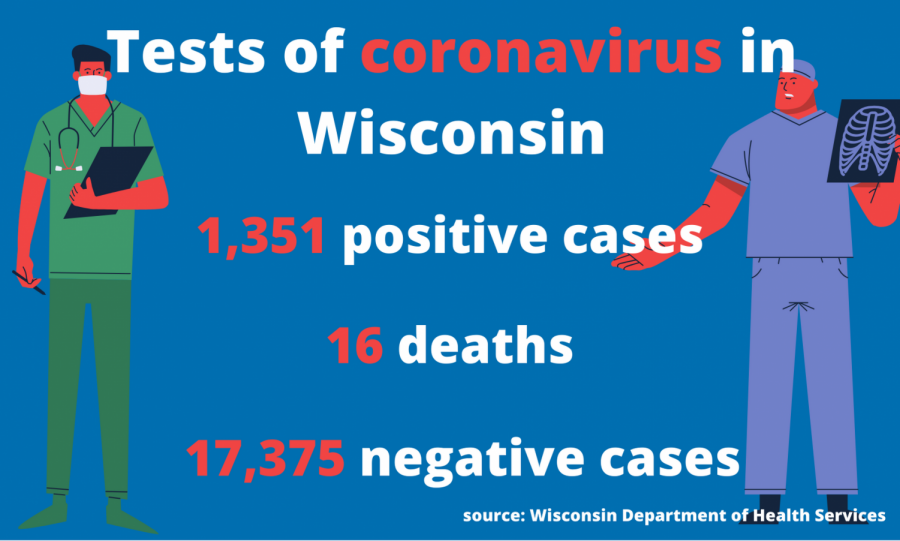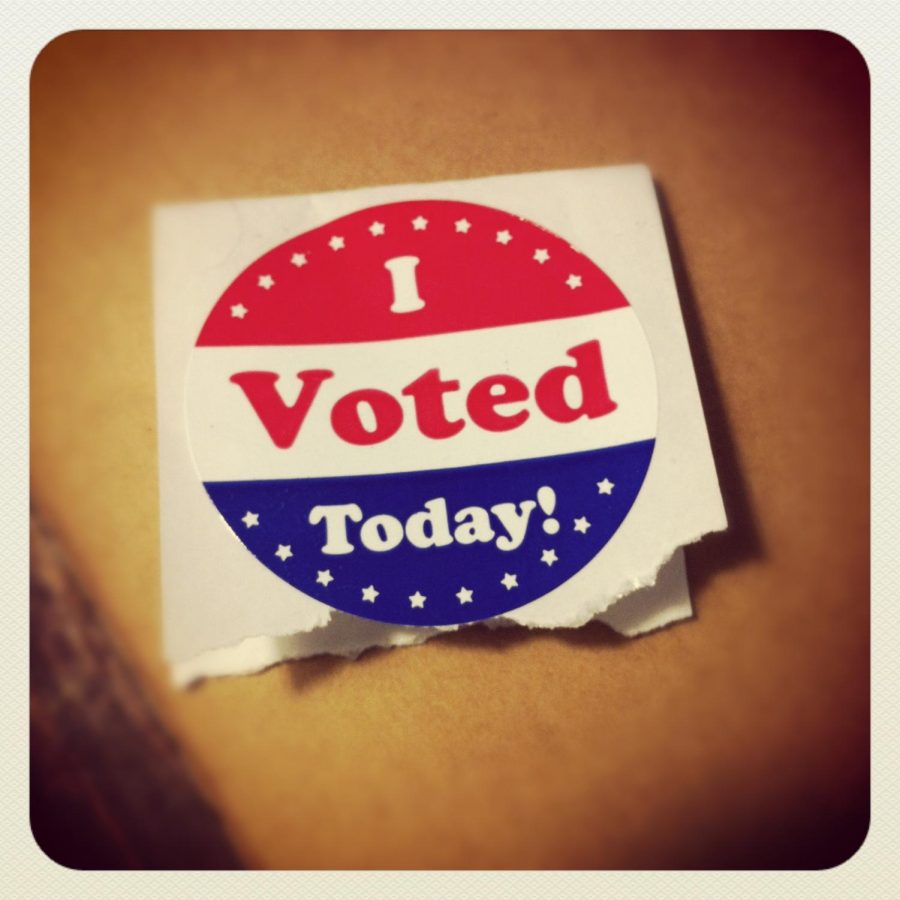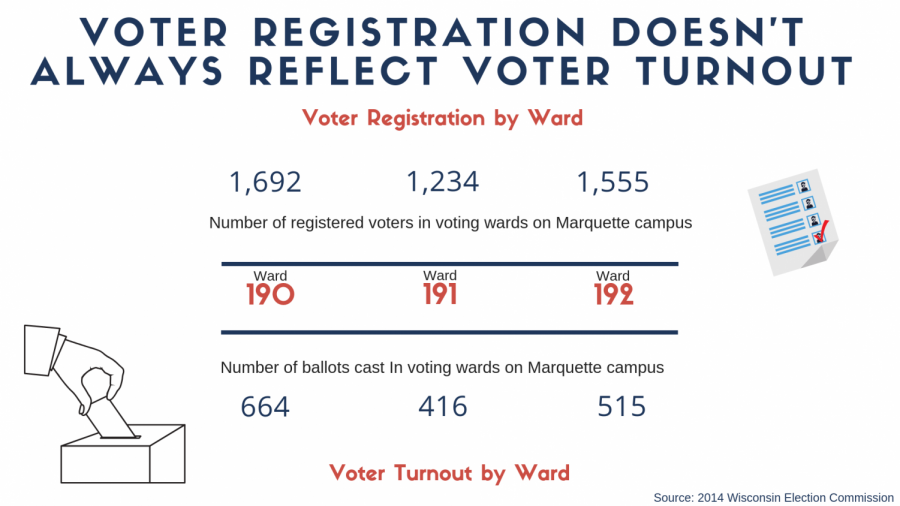Wisconsin’s Government Accountability Board unanimously decided last Tuesday to approve a new voting policy that will allow people to present identification documents on portable digital devices when registering to vote.
When registering, voters are required to produce an official document to prove they are residents of Wisconsin. Approved documents need to include a Wisconsin residential address and must be valid on election day. Valid documents include Wisconsin identification cards, Wisconsin driver’s licenses, residential leases and bank statements. Documents are not kept by poll workers, which raised the question of whether electronic documents could be substituted for paper ones.
The GAB made this decision after college students testified to officials that many of them handle their bill, loan and tuition payments online, making it necessary for voting documents to go digital in order to accommodate the collegiate population.
Marquette graduate student Lauren Johnson agreed with the board’s decision.
“I pay most of my bills online anyway, so I don’t really have paper copies of them anymore. Now I can just bring a copy of a bill on my phone to register. It’s just easier for me,” Johnson said.
Accessibility was one of the main topics during the board meeting, and the GAB hopes to encourage young voters to register by allowing voters to use digital documents during registration.
Before the policy update on Tuesday, the board had not yet decided how to interpret a state law requiring voters to bring an “identifying document” when registering to vote.
Some election clerks urged the board to wait until after the November election before making a decision on whether to include electronic documents under the umbrella of “identifying documents” in order to allow more time to consult with local election officials.
Local officials who spoke at the board meeting last Tuesday morning, however, asked the board to make a quick decision in time for the elections in order to encourage young voters and make the voting process easier and more accessible.
While reactions to this policy have generally been positive, former Marquette student and University of Wisconsin-Milwaukee junior Jacob Lellergy said the ruling will negatively impact the Wisconsin voting process in the upcoming November elections.
“I can’t believe this is really happening; it just doesn’t make much sense to me,” Lellergy said. “Because of this, people are going to be able to tamper with their voting documents more easily. It is easy to mess with digital documents; it doesn’t take a lot of work and emails are easily forwarded and changed.”
“This makes me think, ‘Why even have documents at all?'” Lellergy continued. “It is defeating the purpose that the physical paper documents had.”
Lellergy’s concerns were echoed by some local clerks present at the meeting, who were concerned that a policy change so close to the November elections would mean changes would need to be made to the training materials given to poll workers.
Despite this, the GAB reaffirmed that allowing electronic documents would not be a significant change.
“I guess I can see how some people might think it’s a problem,” Johnson said. “But I don’t think there should be any big concerns over this. It seems like the next step, the next logical thing to happen to voting.”
“Voting is moving into the 21st century,” Johnson added. “Why should we hold it back?”








